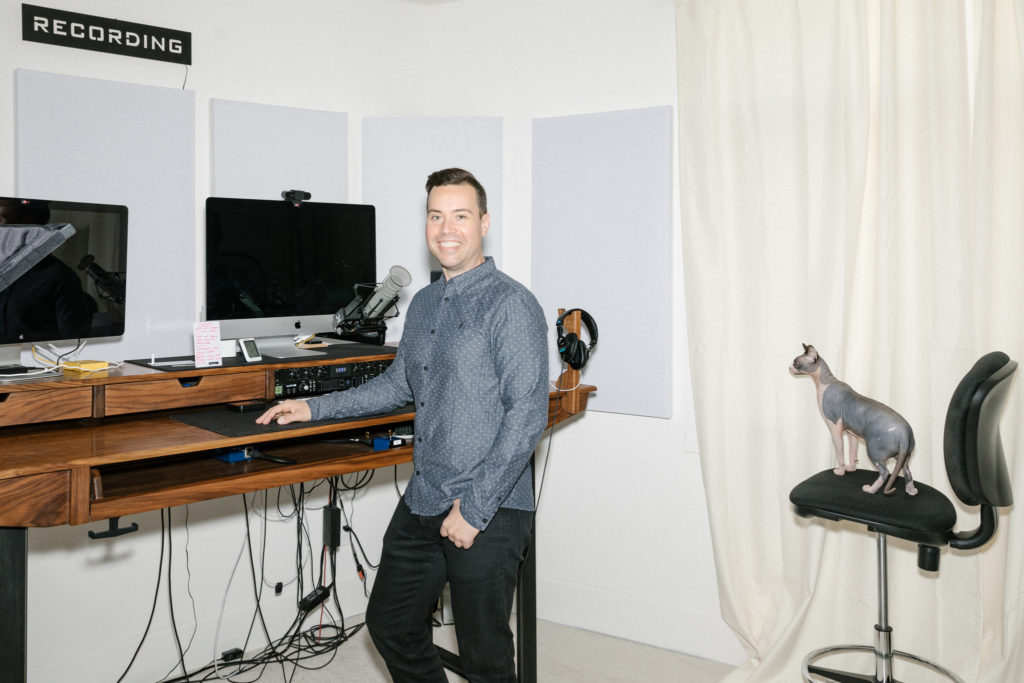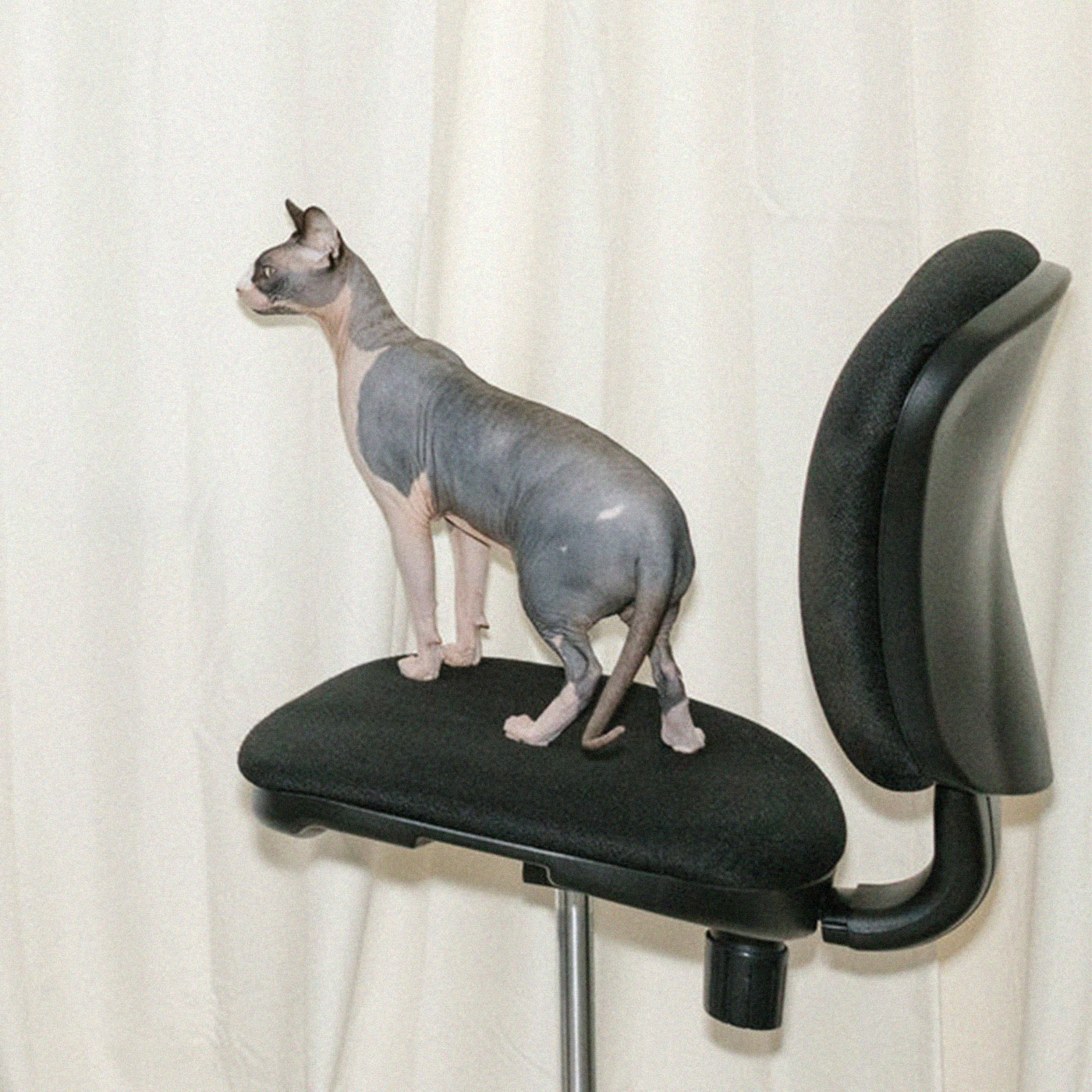As you might have seen, your boy was just in The New York Times talking about the massive glut of podcasts out there. The article’s called “Have We Hit Peak Podcast?” and spoiler alert, the answer in the article is basically “Um, yeah, definitely.”
But the truth is, we haven’t really hit “peak podcast.” We’re just now starting to see the podcast industrial complex for what it really is — a marketing play with a surplus of content — just like we saw the blogging industrial complex for what it was a few years back. Blogs still exist; it just takes really great ones to rise to the top. That’s where we are with audio now.
There were strong reactions to the article all around, ranging from “Ya think?” to “No friggin’ way, bro, we’re just getting started” to “Y’all got any killer true crime recs?” There was also a segment of readers who were not happy about being told by yours truly that they shouldn’t start a podcast.
In actual fact, I’m not discouraging people from starting new shows. I’m just saying it takes a really long time, and a really great product, to cut through the noise — to say nothing of making a living. In my view, if you want to start a podcast, then you better be doing it because you genuinely love it. Not because you want Dollar Shave Club to come along and hand you a boatload of cash to name-check them while you and your hi-larious roommate drag the last season of Game of Thrones over a bottle of rosé.
Anyway, I’m not gonna lie, it’s pretty fun to see yourself in a major newspaper. It’s even more fun to see your hairless cat steal the spotlight by photo-bombing your first major feature. I swear to god, at this rate, Momo’s gonna have a bigger podcast than I do. Actually, that’d make for a pretty killer follow-up piece. Call it “Have We Hit Peak Pawcast?” (Sorry. Been working on my dad jokes a lot recently.)

People are angry and are looking for a place to direct it.
The article mentions two women who started a podcast with high hopes, only to abandon it when they realized how hard it is to make a great show. I actually admired their candor and vulnerability in discussing their failed show. It takes real courage to own your missteps. It takes even more to do it in a major publication.
One of the most common complaints I saw on Twitter afterward was from other young podcasters who were outraged about the free publicity for two people who quit. “Why them?” they asked. But what these people were really asking was, “Why not me? I’ve been doing this podcasting thing way longer than those two, and I’m still at it. Where’s my feature?”
Of course, by calling out what they saw as entitlement, they were only revealing their own. (Did they realize they were complaining about not being featured as a case study in failure? Is that really a piece of publicity they would have wanted? I’m just gonna go ahead side-step that irony reeeeal quick.) Given their traction up till now, I couldn’t help but wonder: Where does that entitlement get them?
I know it’s no surprise, but people be crazy online. They’re angry. They’re frustrated. They’re entitled. They’re a lot of things.
Then, when an article comes out that strikes a chord, it becomes a lightning rod for all their free-floating, radioactive feelings. They project onto the story whatever they want to see/feel/believe, then use it to slam a person they dislike on the internet.
Amazingly, they often do this without even reading the entire article. You have no idea how many trolls I talked to on Twitter who said, “Oh, I actually didn’t read the whole thing, I already hit my free article limit for the month.” To which I replied, “So you basically just read the first paragraph and then fired off 18 tweets about how outraged you are? How’s that working out for you?”
Maybe I’m naive. Maybe I don’t realize how much people cling to their entitlement instead of doing the hard work that pays off slowly over time. I know people are dicks online. God knows I’ve been a bit brusque in my day. But are we really giving a pass to every Tom, Dick, and Chad with a microphone to act like the world owes them 100,000 downloads in virtue of just existing?
Empathy, kindness, and respect still win.
When people got mad at me on Twitter for what I said in the article, I decided to reach out to many of them.
“Hey, just FYI, this was my intention,” I’d say, and then proceeded to explain my position a little more fully. (My quotes were condensed for the article, and my position got a little watered down in publication.) “Maybe I misunderstood yours. Can you help me understand where you’re coming from?”
Nine times out of 10, the person wrote me back saying something like, “Oh, wow, I didn’t realize that’s what you meant. Thank you for explaining yourself; I see where you’re coming from.” Then they’d explain their position, and again, nine times out of 10, I saw a kernel of truth in what they were saying. You know — a conversation.
But underneath those Twitter exchanges was an even deeper admission that basically went: “Oh, jeez, I didn’t realize there was a real person on the other end of this thing.” As we all know, anonymity breeds contempt, especially online. If any of these people were sitting in the same room as me, they’d never say any of this stuff. But behind a keyboard, they let it rip.
To be fair, though, that went in both directions. I erased a number of my own replies a minute after sending them, because I realized that I was basically being unkind. I ain’t perfect.
But the second I chose to lead with curiosity — “Can you explain? I didn’t understand what you meant when you said [insert comment here]” — the entire dynamic shifted. We were just two people trying to understand each other.
And to my surprise, a lot of people actually changed their opinions as a result of our conversation. How often does that happen on Twitter? The answer is almost never, because most people aren’t trying to understand. They’re trying to be right.
For all the vitriol out there, I’m convinced that being kind, cool, and forgiving still win. That might be my idealism talking again, but I’ve seen it for myself now. Empathy, kindness, respect — these things matter. They work. And they have the potential to transform an entire discussion if we just make an effort to lead with them.
But that wasn’t my most important takeaway. My most important takeaway was that…
People friggin’ love cats.
I know. Surprise, surprise. But Momo legit stole my first NYT feature. The article caused a ton of disagreement online, but everyone agreed on one thing: “This cat is amazing.”
So I guess the key to surviving a controversial article about the state of mass media is to make sure your kitty is in every shot. Boom. Problem solved.
“Momo among the wires,” read the caption beneath a photo of my cat perched by my recording equipment. Just out of frame stood his owner, watching, tangled up in them himself.






